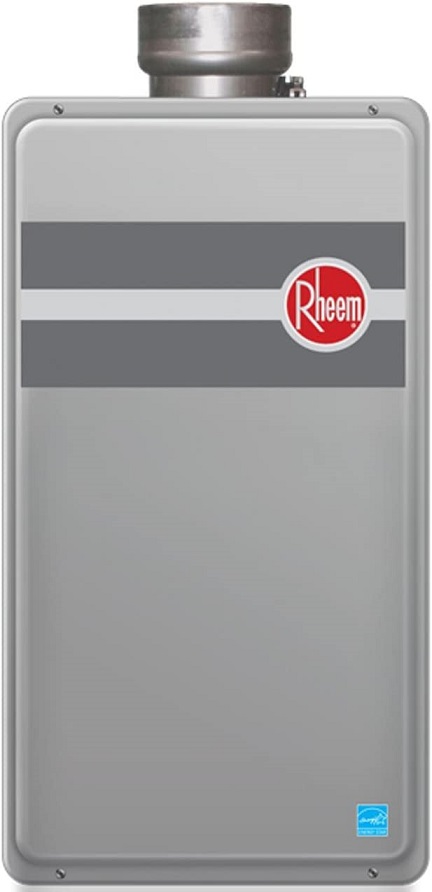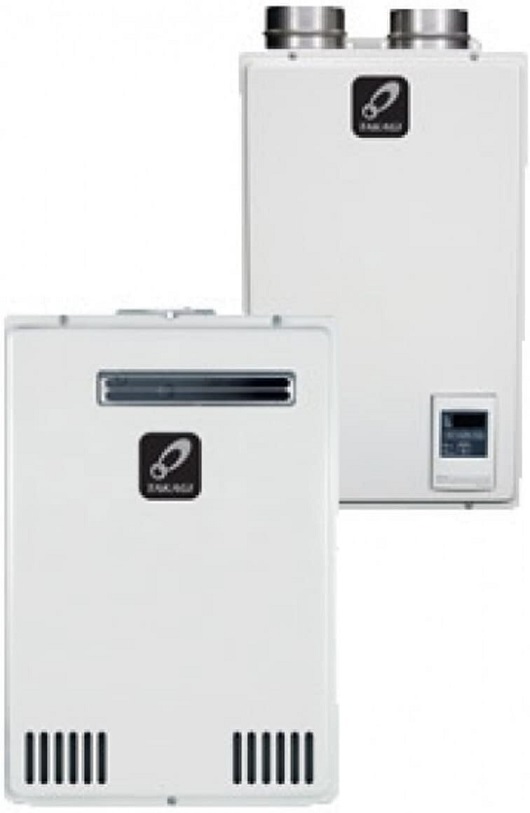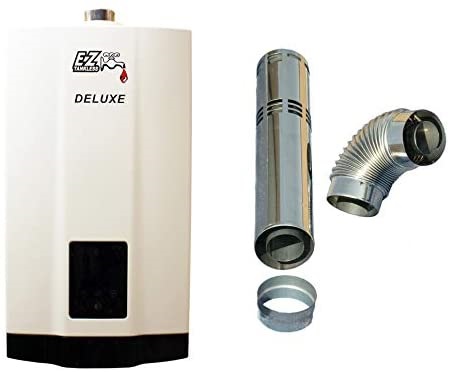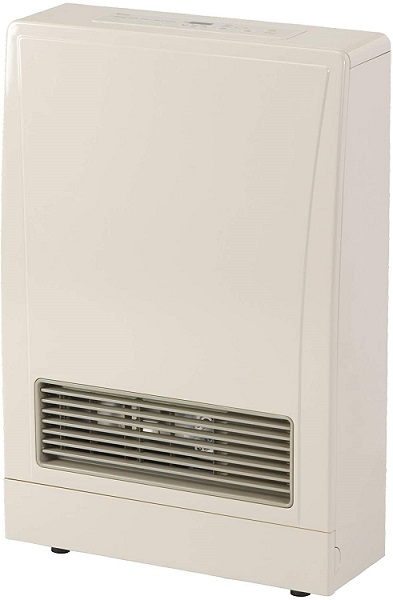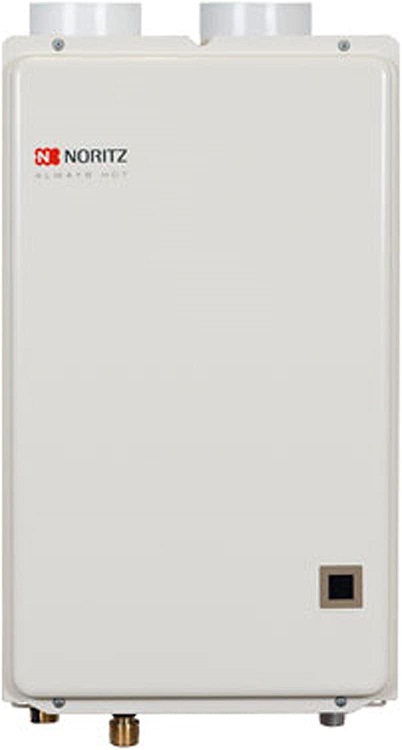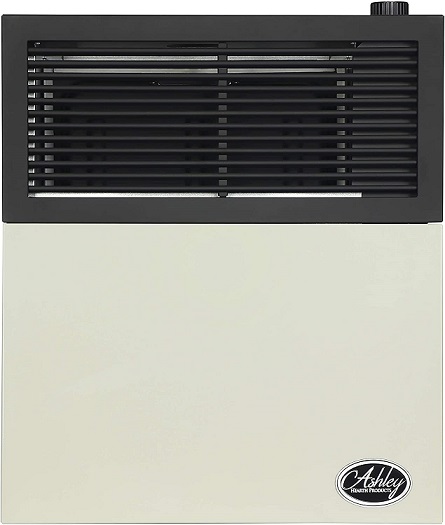Just as you reach peak relaxation in a steamy shower, the unimaginable occurs: a jet of icy water shatters your zen moment. But what if there was a way to ensure a steady stream of hot water, whenever you need it?
There’s a solution to these cold-water woes: the direct vent water heater. Unlike conventional models, they provide a steady stream of hot water uninterruptedly. Look into these vital factors to pick the right one.
- Energy Efficiency: Look for a water heater with an EF rating of 0.67 or higher for optimal performance. Higher EF ratings indicate lower operating costs and greater energy savings over time.
- Size and Capacity: Determine the appropriate size and capacity based on your household’s hot water usage. Consider occupant count, peak hot water demand, and residence size.
- Venting System: Make sure your home’s ventilation system can handle the water heater’s venting needs. Verify the manufacturer’s venting material, length, and installation instructions.
Outline
ToggleBest Direct Vent Water Heater 2024 Table
| Best Direct Vent Water Heater | Power Source | GPM Rating | BTU Rating | Buy Now |
|---|---|---|---|---|
| Rheem NOx Direct Vent Tankless Heater | Gas Powered | Up to 8.4 | 199900 BTU | Check On Amazon |
| Takagi Condensing Direct Vent Water Heater | Gas Powered | Up to 6 | 120000 BTU | Check On Amazon |
| EZ Deluxe Tankless Water Heater | Gas Powered | Up to 3.4 | 87500 BTU | Check On Amazon |
| Rinnai EX11CTP Space Heater Wall Furnace | Gas Powered | --- | 11000 BTU | Check On Amazon |
| Noritz NRC71DVNG Direct Vent Tankless Water Heater | Gas Powered | Up to 7.1 | 157000 BTU | Check On Amazon |
| Ashley Hearth Direct Vent Propane Heater | Gas Powered | --- | 11000 BTU | Check On Amazon |
Best Direct Vent Water Heater Reviews
1. Rheem NOx Direct Vent Tankless Heater
If you are sure that you need a high-performance direct vent water heater, look no further. We are bringing one of the most powerful options available on our list at the top to make your choice easier.
In the 1st place, we are putting the Rheem RTG-84DVLN direct vent water heater. This unit offers about 8.4 GPM water flow rate which is quite high considering it is a tankless water heater. On top of that, it uses natural gas as a primary fuel source which is readily available in the market. With the Rheem RTG-84DVLN, you will get about a 35-degree rise in ambient water temperature even at such a high flow rate.
The Rheem RTG-84DVLN also offers the best thermal capacity compared to other options on this list. This unit is rated for about 199900 BTU capacity which should be enough for heavier applications. And, you can also access this water heater remotely with the help of the UMC-117 remote control included with the unit. To help you with the installation, the package also includes a 10 feet long thermostat wire along with other essential accessories.
Best Features:
- Gas-powered direct vent water heater
- Offers up to 8.4 GPM water flow rate
- It has a thermal capacity of 199900 BTU
- Comes with a UMC-117 remote control
Pros:
- Best option for heavy-duty applications
- Thermal capacity is best in class
- Low NOx version for reduced toxic emissions
Cons:
- Very expensive option for basic needs
2. Takagi Condensing Direct Vent Tankless Water Heater
Takagi is also offering a premium tankless water heater which can be a perfect option for compact installation spaces. Takagi is a Japanese company that excels in a variety of products including water heaters.
In the 2nd position, we have the Takagi T-H3M-DV-N Tankless Water Heater. It is rather a fresh option for a tankless water heater that uses the existing half-inch supply lines available in your homes for installation and saves you from the trouble and expenses of installation. You can also connect the Takagi T-H3M-DV-N Tankless Water Heater with a dedicated water tank to get the water flow you need.
Without that, the Takagi T-H3M-DV-N Tankless Water Heater is capable of offering up to 6 GPM water flow thanks to its thermal capacity ranging up to 120000 BTU. Even with such a high BTU rating, this option offers an efficient heating system and stands as a suitable option for 2 bathrooms in a single house. The best part about this brand is that it offers a 15 year long warranty on the heat exchanger along with a 5 year warranty on other parts. Therefore, you are definitely buying a reliable option if you are going with the Takagi T-H3M-DV-N Tankless Water Heater.
Best Features:
- Gas-powered direct vent water heater
- Offers up to 6 GPM water flow rate
- It has a thermal capacity of 120000 BTU
- Comes with 15 year warranty on the heat exchanger
Pros:
- Therma capacity is pretty good
- Can be used for 2 bathrooms at once
- Energy-efficient option with a reliable warranty period
Cons:
- It does not have remote control feature
3. EZ Deluxe Tankless Water Heater
If the options we have seen so far seem a bit expensive, worry not. EZ Tankless is bringing a great choice for a direct vent water heater that offers a great balance between budget and performance.
The EZ Tankless Deluxe Water Heater is also a great option if you don’t want to spend a fortune on a direct vent water heater. This offers up to 3.4 GPM water flow rating with a thermal capacity of 87500 BTU so it becomes an ideal option for household applications. Once turned ON, the EZ Tankless Deluxe Water Heater can easily offer enough warm water for one or 2 baths within a short time.
You can also control the parameters of the EZ Tankless Deluxe Water Heater via the handy LCD control panel provided on the front. Just like other premium options, the EZ Tankless Deluxe Water Heater has a dual-chamber design for separate intake and exhaust, ultimately increasing the efficiency of the heater. At 3.4 GPM water flow rate, this direct vent water heater can increase the water temperature by up to 45 degree Fahrenheit above its ambient temperature level.
Best Features:
- Gas-powered direct vent water heater
- Offers up to 3.4 GPM water flow rate
- It has a thermal capacity of 87500 BTU
- Dual chamber design for intake and exhaust
Pros:
- Features an LCD control panel
- Raises the water temperature by up to 45 degree Fahrenheit
- Comparatively cheaper than a few other options
Cons:
- Thermal capacity is quite low in comparison
4. Rinnai EX11CTP Space Heater Wall Furnace
In the winter season, you also need a decent room heater along with a decent water heater. Thus, we are including the space heater from Rinnai on our picks. Rinnai also has a couple of great options for tankless water heaters that you should check out.
The Rinnai EX11CTP is a rather different product from what we have been looking for so far. This is a space heater or a wall furnace as opposed to a direct vent tank heater. But, it is an equally important accessory when winter hits its lowest point in the season. The Rinnai EX11CTP also works on propane gas and offers a thermal capacity of about 11000 BTU. Therefore, you can expect an approximate coverage area of about 1100 sq. ft. once you install this unit.
The Rinnai EX11CTP Space Heater features stainless steel bunsen burners that create a warm air outlet, offering warmth throughout the room. It also has a selection of smart features that you will definitely like. Since this is an energy-efficient option, it works with an electronic spark ignition system and comes with a 7-stage gas valve to offer optimal performance. The electronic thermostat on the Rinnai EX11CTP Space Heater offers a temperature range of 60°F to 80°F, offering an ideal living condition.
Best Features:
- Gas-powered space heater
- It has a built-in self-diagnostic system for safety
- It has a thermal capacity of 11000 BTU
- The electronic thermostat offers a 60°F to 80°F temperature range
Pros:
- Great option to warm up the room in winters
- It has an approximate coverage area of about 1100 sq. ft.
- Features multiple smart features
Cons:
- Initial investment is very high
5. Noritz NRC71DVNG Direct Vent Tankless Water Heater
If you are familiar with the basic and affordable options for a direct vent water heater, let us move on to the premium range options designed for heavy usage. One such option from Noritz certainly catches the eye with its specifications.
The Noritz NRC71DVNG is also a great option for a direct vent indoor tankless water heater. Unlike most other options, this is a heavy-duty model that offers a water flow rate of about 7.1 GPM. Therefore, you can use the Noritz NRC71DVNG for a versatile range of applications apart from basic bathroom activities. Even with such a high GPM rating, the Noritz NRC71DVNG offers a thermal capacity of about 157000 BTU, making it the right choice for extremely cold regions.
Despite its powerful specifications, the Noritz NRC71DVNG offers a compact and space-saving design, having a footprint of only 6.7 x 13.8 x 23.6 inches. And, it is also an environmentally friendly option as Noritz promises low NOx emissions from the machine. The Noritz NRC71DVNG can be vented using the standard 3 inches 40/80 PVC pipes. Plus, there are tons of adaptors and accessories supported by this unit that allow multiple types of venting options.
Best Features:
- Gas-powered direct vent water heater
- Offers up to 7.1 GPM water flow rate
- It has a thermal capacity of 157000 BTU
- Supports multiple types of venting options
Pros:
- Measures only 6.7 x 13.8 x 23.6 inches in size
- Highly energy-efficient option
- Supports high water flow rate
Cons:
- Very expensive option compared to other choices
6. Ashley Hearth Direct Vent Propane Heater
For the last, we have saved the most affordable option available in the market for a direct vent propane heater. This propane heater is made by Ashley Hearth, a well-known brand offering home accessories since 1905.
The Ashley Hearth DVAG11L is our last choice for the best direct vent propane heater. Similar to most other options, it also uses propane as the fuel source to offer a thermal capacity of up to 11000 BTU, which is sufficient for small homes. So if you are living alone and need a space heater for your house, this is the space heater for you. Even with the given thermal capacity, the Ashley Hearth DVAG11L is capable of offering a coverage area of about 375 sq. ft. which is pretty good.
The sealed burn system of the Ashley Hearth DVAG11L makes it a perfect option for bedrooms and living spaces. It also has a built-in piezo lighting system to quickly start the unit when needed. After buying the Ashley Hearth DVAG11L, you won’t have to browse the market for any additional installation accessories since all necessary parts are included within the package. The Ashley Hearth DVAG11L also has a handy knob at the top to let you quickly manage the heating level within preset conditions.
Best Features:
- Gas-powered direct vent water heater
- Easy-access knob to manage temperature level
- It has a thermal capacity of 11000 BTU
- Comes with all necessary accessories
Pros:
- It has a coverage area of 375 sq. ft.
- Works with liquid propane gas
- Approved to be used to modular homes
Cons:
- Coverage area might be too low for large families
How does the Direct Vent Water Heater Work?
A direct vent water heater operates by drawing in combustion air directly from outside the building and expelling combustion gases outdoors through a sealed venting system. Here’s a step-by-step explanation of how a direct vent water heater works:
1. Combustion Process
When the water heater is turned on, the burner ignites, creating a flame within the combustion chamber.
2. Air Intake
Instead of using indoor air for combustion, a direct vent water heater has a dedicated intake pipe that brings in air from outside the building. This ensures that the unit does not consume heated indoor air, enhancing energy efficiency.
3. Combustion Air and Fuel Mixture
The outside air is mixed with fuel (usually natural gas or propane) within the combustion chamber, creating a controlled and efficient combustion process.
4. Heat Transfer
The heat generated from the combustion process is transferred to the water within the tank through a heat exchanger.
5. Exhaust Gas Venting
Combustion gases, including carbon monoxide and other byproducts, are safely vented outside through a sealed exhaust pipe. This venting system is typically coaxial, with an outer pipe drawing in fresh air, and an inner pipe expelling combustion gases.
6. Ventilation System
The direct vent system relies on a natural draft or, in some cases, a fan-assisted power vent to facilitate the movement of combustion gases out of the water heater and into the outdoor atmosphere.
7. Sealed Combustion System
Direct vent water heaters have a sealed combustion system, meaning that the combustion process occurs within a sealed chamber. This prevents any backdrafting of combustion gases into the living space, enhancing safety.
8. Efficiency and Safety
By using outside air for combustion and safely venting exhaust gases outdoors, direct vent water heaters are more energy-efficient and reduce the potential risks associated with indoor air quality and ventilation.
Buying Guide For The Best Direct Vent Water Heater
If you are noticing problems with your current water heater or thinking about replacing it for quite some time due to expensive electricity bills, worry not. You have arrived at the right place since we are discussing the best direct vent water heaters which we could find in the market right now. A direct vent water heater uses a special type of coaxial venting installation with separate chambers for intake and exhaust.
With this design, manufacturers can design a direct vent water heater within a very compact footprint. If you get your hands on a decent direct vent water heater, you will notice significantly lower heating costs compared to its competitors. But, it is only possible if you buy the right option according to your needs. And to help you with that, we are presenting this buying guide for the best direct vent water heater. In this guide, we will tell you about some of the most important features and specifications of a direct vent water heater so that you can easily make up your mind about which option you should buy.
1. Type of Water Heater
Before you replace your current water heater or buy a new one for your house, you should first check what types of water heaters are available in the market and which option amongst them can be suitable for your needs. Right now, the most popular options present in the market are:
a. Storage tank Water Heaters
Storage tank water heaters are the most common type of water heaters in the market right now. But, you should also consider the fact that these options are slowly getting obsolete as there are new and improved types of water heaters now. In these water heaters, there is a built-in water tank where water is heated before you can use it. Even though this is a more reliable option, it is comparatively less energy-efficient and costs more in terms of running costs.
b. Tankless Water Heaters
Tankless water heaters are the up-and-coming water heaters that are slowly becoming a preferred choice for many users. As the name indicates, tankless water heaters do not need to store water before they can heat it. Instead, it encompasses heating coils on the inside that heat up the water based on the user’s demand. Since it does not have to heat up a lot of water at once, you can imagine how it is a more energy-efficient option. The only drawback with this type of water heater is the limited GPM rating.
c. Hybrid Water Heaters
Hybrid water heaters are also quite efficient in terms of energy usage as they capture heat from the air and transfer it to the water, increasing its temperature. A decent hybrid water heater might cost significantly more compared to a basic electric water heater. But, it also manages to save about 60% energy while offering the same performance. But, you cannot rely on hybrid water heaters as they do not work well in cold weather conditions. For these heaters to perform optimally, the surrounding temperature should be within the 40°F to 90°F range.
d. Solar Water Heaters
If you wish to go completely environmentally friendly, then solar water heaters are the perfect option for you. But, you should also keep in mind that these water heaters are significantly larger in size and require an expensive initial investment. A solar water heater has a room-mounted unit consisting of a bed of solar cells that generate energy from sun rays and transfers the heat to a heating medium. Then, the heating medium is used to increase the water temperature via indirect heat transfer. It also has the drawback of not performing optimally in cloudy or cold regions.
2. Energy Efficiency
New-generation water heaters like direct vent water heaters are much more energy-efficient compared to traditional models. While an energy-efficient model might cost a lot in the beginning, it will be worth the investment as it can save you a lot in terms of electrical bills in the long run. Therefore, you should check the energy efficiency rating on the direct vent water heater before you make your choice.
Fortunately, all of the options that we have included on our list today offer a high energy efficiency rating. Therefore, the energy needed to operate any of these units to heat up a certain amount of water is definitely lesser than that of a traditional option for the same task. You can get an idea about the energy efficiency of a particular direct vent water heater by checking its energy-star rating. The higher this rating is, the more energy-efficient the product will be.
3. Water Flow Rating
A huge drawback of tankless water heaters is the limited GPM or gallons per minute rating which was not a problem with old water heaters with a tank. In older options, you could store a lot of water inside a tank and heat it up at once. After that, you can use the water as you please, whether for a short time or throughout the day. In the case of a tankless water heater, there is a specified GPM or gallons per minute rating provided to all heaters that tell you about the rate at which you will get hot water.
If you increase the flow rate above the specified GPM level, you probably won’t get the desired temperature with the water coming out of the system. On most tankless water heaters, you will find the GPM rating which makes it easier to understand and check whether it is applicable for you or not. If you are using the tankless water heater for basic bathroom activities, then a 3 to 6 GPM tankless water heater can easily suffice for your needs. On the other hand, if you are connecting multiple outlets to the heater or using it for other applications where a higher water flow is needed, you should consider going with a 7 to 9 GPM water flow tankless water heater.
4. Warranty
Checking the warranty period is a very important step before you buy an accessory for your home, especially an expensive accessory like a direct vent water heater. You never know what can go wrong with these devices and when you will find yourself looking for a replacement for a water heater that you bought only a couple of months ago. Well, it won’t be the case if you are buying a direct vent water heater that has a long warranty period.
Within the warranty period, the brand takes full responsibility for any internal damage to the machine and offers you free repairing services if needed. You may also avail of free-of-cost replacement of a certain internal part if the damage is beyond repair. Considering you are investing a significant sum on a direct vent water heater, you should definitely check out the warranty period as well as the factors that are covered within the said warranty period from the brand.
Direct Vent Water Heater – FAQs
Ans: A direct vent water heater is basically a gas heater that draws fresh air from outside and mixes it with propane or natural gas. The mixture is then combusted into a combustion chamber which ultimately increases the temperature of the water. Once the combustion cycle is completed, the exhaust gasses are released into the atmosphere and the cycle continues. These options are perfect for installation where there is not enough ventilation available in the room.
Ans: Just like any other type of water heater, direct vent water heaters also have a couple of advantages and limitations that you should be aware of before you make your decisions. While the advantages are certainly beneficial for a lot of users, the limitations can be a deal-breaker for some.
Advantages
*Direct vent water heaters have a low running cost.
*These options are generally more efficient than traditional water heaters.
*In comparison, direct vent water heaters make less noise than a power vent water heater.
Limitations
*Proper piping and venting installation is necessary for installing a direct vent water heater.
*The initial cost of the unit itself is quite expensive.
Ans: If you live in a rather cold region, then you will probably have to go with a direct vent water heater over other choices. If you can install a chimney or other ventilating accessory along with the direct vent water heater, it can be the right choice in terms of energy efficiency and performance. Since these options are operated over natural gas, it won’t affect your monthly electricity bill, which is an important benefit for a lot of buyers.
Ans: Yes, a direct vent water heater is better because it is more energy-efficient, safer, versatile in installation, and can result in energy cost savings.
Ans: A power vent water heater is a type of water heater equipped with a fan or blower to expel combustion gases outdoors. This design allows for more flexible installation options in locations where traditional venting methods are not feasible.
Ans: No, a power vent water heater does not run continuously. The power vent system is designed to operate only when the water heater is actively heating water. When the water heater is not in use, the power vent system remains idle. It activates during the heating process to expel combustion gases and maintain a safe and efficient operation. This intermittent operation ensures energy efficiency and prevents unnecessary power consumption when hot water is not being used.
Conclusion
We hope that you have managed to find the perfect direct vent water heater available within your budget on our list today. Since we have included a variety of options on our list, it definitely makes it easier to make a choice and select the unit that offers you the specifications you need the most. We have also mentioned a few pros and cons of each direct vent water heater so that you can make a doubt-free choice. If you are confused between 2 or more options, kindly check out our buying guide for the best direct vent water heaters before you make your decisions. We also have a few recommendations for you just in case, if you need a second opinion.
- As you may already know, factors like GPM rating and BTU capacity matter a lot for a direct vent water heater. So if you are looking for a heavy-duty option for larger applications, we will suggest going with the Rheem RTG-84DVLN. This is a tankless natural gas water heater that can provide up to 8.4 gallons of water per minute with a temperature increase of about 35-degrees from its initial temperature. You can also access the Rheem RTG-84DVLN remotely with the included UMC-117.
- If you also need a decent space heater, the Ashley Hearth DVAG11L is a perfect option for small applications and household installations. It offers 11000 BTU thermal capacity and works on propane as the primary fuel source. This unit has a coverage area of about 375 sq. ft. which is sufficient for a standard room. For the Ashley Hearth DVAG11L, you won’t need any complicated venting installation or setup. The heater comes with a complete kit of what you will need at the time of installation.
- If you are looking for a perfect balance between price and performance, consider checking out the EZ Deluxe Tankless Water Heater. It is a rather affordable option compared to the premium options in the market and offers about a 3.4 GPM water flow rate. Thus, it is enough to provide for a small family in terms of regular bathroom water usage. As for the thermal capacity, the EZ Deluxe Tankless Water Heater has an 87500 BTU rating, which is pretty great at this price range. It also has a dual-chamber design like most other direct vent water heaters for added efficiency.

